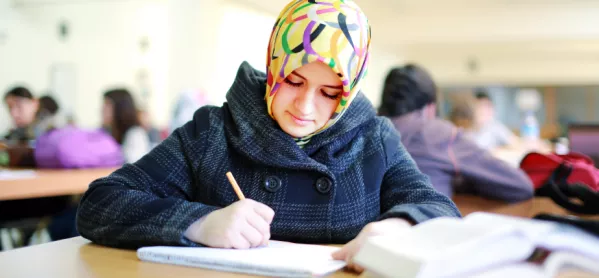A little over two weeks ago, the government announced that schools should close to all, except for children who are vulnerable and those whose parents are key workers “critical to the Covid-19 response”. It was the right decision, bearing in mind the potential for schools to become hotbeds of Covid-19 transmission.
However, it is also important to consider the disproportionate impact this decision will have on black and minority ethnic families, and Muslims in particular.
BAME children are more likely to live in extended family structures, with their grandparents and other elderly relatives. These children are now more likely to be in sustained close proximity with these elderly relatives, who are at greatest risk of experiencing fatal symptoms due to Covid-19.
We have already seen the heightened risk facing the Muslim community in particular, with the suggestion that up to a third of Covid-19 deaths so far have been from within the Muslim community. No doubt, this is in large part influenced by the tightly knit family structures that tend to dominate in the BAME groups that predominantly constitute the Muslim community.
Muslim families hit by coronavirus
One has to wonder about the impact of these death rates on the children themselves. With the month of Ramadan approaching, Muslim families will have been preparing for a time of greater community spirit, with adults and children gathering in the evenings in mosques to share food and prayer; enjoying the solidarity of fasting and eating together. Instead, they will have to contend with greater isolation at home, and potentially seeing their loved ones dying.
Due to restrictions on funeral rites, in place to prevent transmission of the virus, saying goodbye to loved ones will be bereft of the usual closure provided by the elaborate Islamic burial rituals. I fear that this will be fertile ground for mental health issues to take root. Given that mental health awareness is still a work in progress in some BAME communities, this is of particular concern.
The government’s latest lockdown measures are unquestionably the right decision, given their effectiveness in slowing the spread of the disease. Nonetheless, they will entail greater disruption for BAME children and families. For many BAME parents, extracurricular faith and community schools can also provide an important social, cultural and moral education for their children.
These evening and weekend schools closing, although the right move, will increase burdens on parents and potentially bring more vulnerable elderly relatives into childcare roles. Not to mention that these schools form an important part of the routines of many children, giving them the opportunity to build their confidence and feel a part of community life. Losing this will be a further blow, again with potential implications for their mental health.
Economics will also play a role in exacerbating these issues. With some exceptions, BAME children are more likely to be eligible for free school meals. Many of these children are in effect dependent on their schools to receive adequate nutrition. A closure of schools will put BAME households under greater pressure to ensure that their children are well fed. These households are less likely to own a house or have any savings, and more likely to use food banks. This makes them extra vulnerable to shocks to their income, or increased pressure on food banks and other public services that they are reliant on. I was pleased, therefore, to see education secretary Gavin Williamson’s guarantee that children eligible for free school meals will continue to be provided for while their schools are closed - and into the Easter holidays. This will prevent many children from going hungry in the coming weeks and months.
The government has demonstrated a laudable awareness of how measures taken in response to the Covid-19 threat will impact the most vulnerable. During these challenging times, we must also ensure that we remain sensitive to the needs of the most vulnerable children, many of whom come from BAME backgrounds.
Harris Bokhari is a national board member of Mosaic - The Prince’s Trust mentoring programme, and founder of the Naz Legacy Foundation





